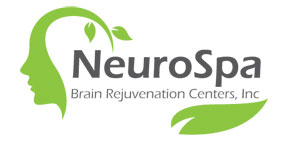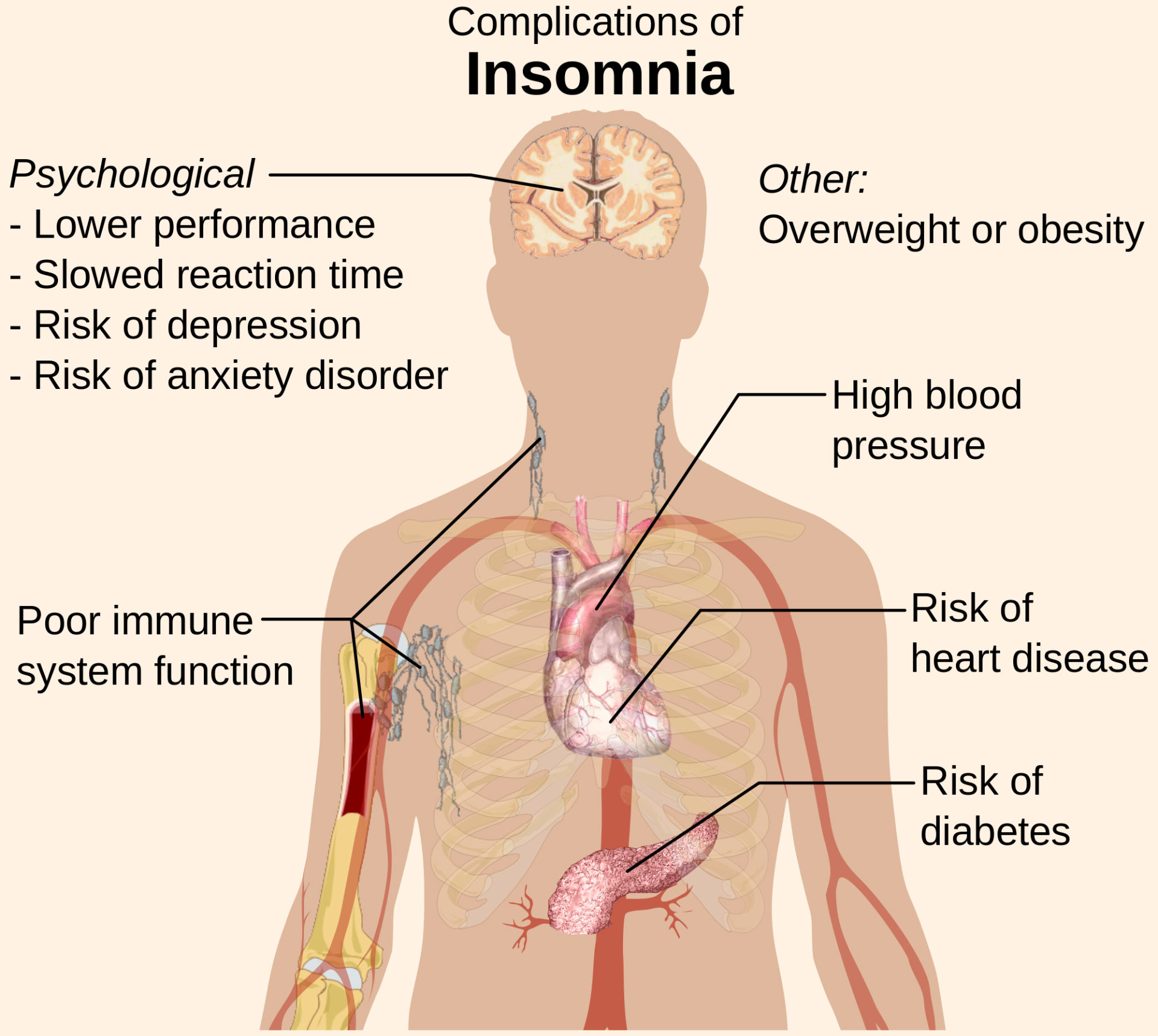Insomnia is defined as difficulty with either falling asleep or staying asleep. Normally, the onset of sleep should occur within 15-30 minutes of going to bed. In addition, there should be minimal to no sleep interruptions that lead to wakefulness state during the night. Studies show that most people required minimum of 7 hours of uninterrupted sleep per night to avoid the consequences of poor sleep.
Sleep is an active physiological process that starts in specific regions of the brain and involves very specific patterns of brain activity. Sleep is essential for normal biological function of every cell in the body. Animal studies show that extreme and prolonged sleep deprivation can eventually lead to cell death. In humans, lack of adequate sleep can lead to poor brain function including memory loss, poor concentration, mood disorders, increased irritability, weight gain, high blood pressure, irregular hormonal fluctuations, and man other physiological effects. In addition, prolonged lack of adequate sleep can increase risk of hear disease, dementia, and even cancer. Studies from the CDC show that more than 30% of people in the U.S. are not getting recommended 7 hours of sleep per night.
Treatment of insomnia starts with through medical evaluation and discussion of risk factors listed above. Unfortunately, many patients are prescribed harmful medications, or sleep aids, or over-the-counter medication. These medications, when used more than just a handful of times over span of several months, can lead to even worsening sleep disorder, poor sleep architecture in the brain, tolerance, and even seizures or memory loss. At NeuroSpa, as part of our TMS treatment for insomnia, we begin evaluation with a neurological consultation followed by QEEG or brain mapping to localize the cause and regions of brain affected.
Transcranial Magnetic Stimulation, or TMS treatment for insomnia, is a nonmedication approach that can “rewire” and restore normal brain function and help resolve insomnia forever. Numerous research studies have shown the benefits of TMS in alleviating insomnia and increasing normal sleep patterns. In addition, we often combine TMS treatment for insomnia with Neurofeedback to enhance the effects of TMS and treat insomnia with a completely non-pharmacological strategy.



